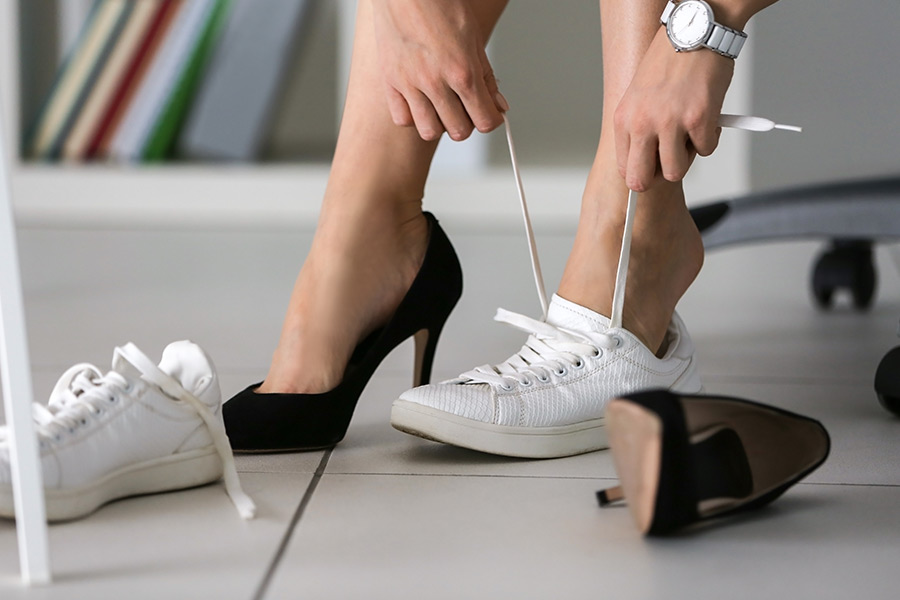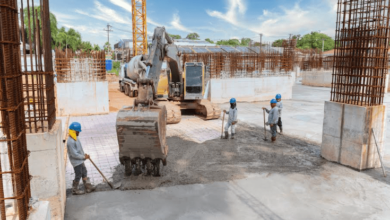Benefits of wearing women’s running shoes

Plantar fasciitis is a prevalent foot condition affecting the bottom of your foot. It can be caused by an overuse injury or simply from spending too much time on your feet. Plantar fasciitis can occur in people of any age and gender. This article will provide tips for choosing the womens running shoes for plantar fasciitis that will help reduce pain and discomfort while also helping you to prevent injuries in general.
Unique designs of womens dress shoes for plantar fasciitis
For those with plantar fasciitis, there are some significant benefits to wearing women’s running shoes for Plantar Fasciitis. These womens dress shoes for plantar fasciitis feature several features that make them ideal for people with this condition. Let’s take a look at some of the most important benefits of wearing women’s running shoes for Plantar Fasciitis:
Womens walking shoes for plantar fasciitis are best for walking
The women’s walking shoes for plantar fasciitis are designed to be very lightweight and flexible. It allows them to provide your feet with significant support while still allowing them to move freely and naturally. You can wear these shoes all day long without feeling weighed down or like your feet are restricted.
Continue your routine work shoes for plantar fasciitis
The best way to keep the plantar fasciitis from getting worse is to continue with your regular work boots for plantar fasciitis. Please don’t give up, don’t let the pain stop you from working and don’t let it stop you from walking and running.
With proper foot support and correct gait, one can continue wearing regular work shoes for plantar fasciitis without further pain or discomfort. The key is to have an appropriate pair of running shoes with adequate shock absorption and good arch support that can help absorb some of the impacts on your feet while walking or running at work or outside.
Workout shoes for plantar fasciitis
The workout shoes for plantar fasciitis have a raised heel and cushioning in the heel area. It is essential because it will help keep your Achilles tendon stretched out and prevent it from contracting. It will also prevent any rubbing or irritation on the bottom of your foot. Which could lead to more severe injuries such as broken bones or sprained ankles.
The shoe has lots of cushioning throughout all parts of the sole. Including underfoot, where it’s needed most to relieve pressure on arches when walking around during daily activities (like working at an office desk).
Buy best running shoes for Achilles tendonitis and plantar fasciitis
If you’re suffering from plantar fasciitis, knowing what type of running shoes is best for your condition can be challenging. Following are recommended types:
- Women’s running shoes with heel cushioning
- Supportive best running shoes for Achilles tendonitis and plantar fasciitis. These provide a lot of shock absorption and stability in the heel area. It is essential because if your feet aren’t properly supported while you’re running. They’ll experience more stress on their joints than necessary—which can cause pain and inflammation throughout the body!
Best running shoes for high arches and plantar fasciitis
Choosing the right running shoe is critical if you have high arches and plantar fasciitis. You want to make sure that it supports your feet and arches and provides proper support for the muscles in your feet. For this reason, it’s best to see a podiatrist or physical therapist who can evaluate your gait and recommend the best shoe model. However, if you’re looking for some general guidance on how to choose the best running shoes for high arches and plantar fasciitis based on arch type (or even if you want help finding the right pair), here are some tips:
- If you have fallen arches: Runners who suffer from fallen arches often choose stability-shoe models because they offer additional cushioning around the heel area where most of their pain is located. These runners should look for shoes with higher heel-to-toe drop ratios (a more significant number difference between heel height and forefoot height). Shoes with smaller numbers are better suited for those who need extra stability from their footwear because they’ll provide less cushioning around areas where there’s already plenty of protection—like behind your heels!
Best running shoes for ladies with plantar fasciitis
The best running shoes for ladies with plantar fasciitis are the ones that fit your feet and meet your needs. If you have high arches, fallen arches, or a combination of the two. You’ll want to be sure that your shoes support those areas. A shoe that doesn’t do this will not help with plantar fasciitis.
You also need to consider how much support you need when choosing a running shoe for ladies with plantar fasciitis. You can get many different levels of support from one pair of shoes or choose a shoe designed specifically to meet your needs (e.g., if you have high arches).

Finally, always try different styles before buying them to find what works best for your body type and activity level!
Best shoes for Achilles tendonitis and plantar fasciitis
If you are suffering from plantar fasciitis or Achilles tendonitis. There are a few things you should look for in running shoes. The best shoes for Achilles tendonitis and plantar fasciitis will have a good heel cup, a thick heel counter, a substantial midsole and an outsole with good cushioning qualities. They should also have an insole designed to alleviate the pain caused by these conditions. Lastly, they should have arch support that helps keep your foot aligned throughout the entire running process so as not to aggravate your situation further or cause any other problems down the road.
Best shoes for fallen arches and plantar fasciitis
- The best shoes are found for women with a fallen arch by creating a biomechanical foundation. The shoe must fit your foot perfectly to run without pain and strain.
- The heel of the best shoes for fallen arches and plantar fasciitis should be wide enough to accommodate your foot’s natural shape but not too wide or bulky to avoid rubbing against it when walking or running.
- The forefoot should be flexible and lightweight, allowing you to move more naturally and efficiently as you run or walk around town.
Conclusion
In conclusion, the best shoes for plantar fasciitis are running shoes with a specific purpose. They should be designed to relieve pressure from your heels and arches and be comfortable enough to wear all day long without feeling uncomfortable.




